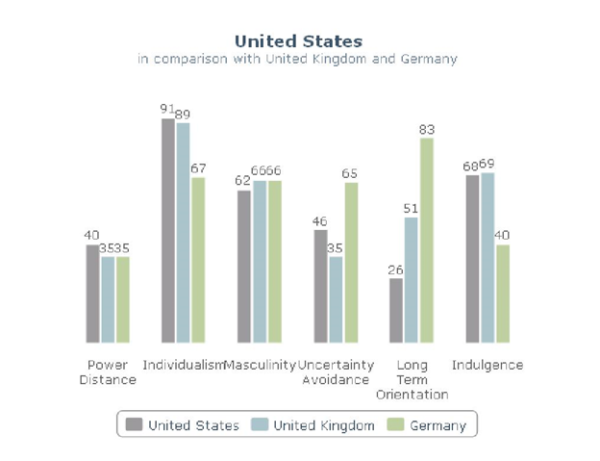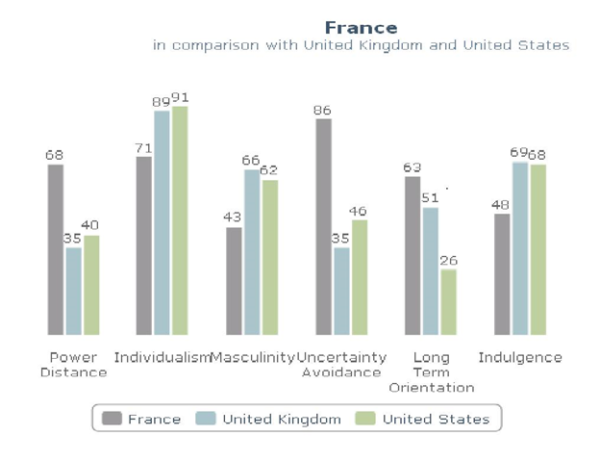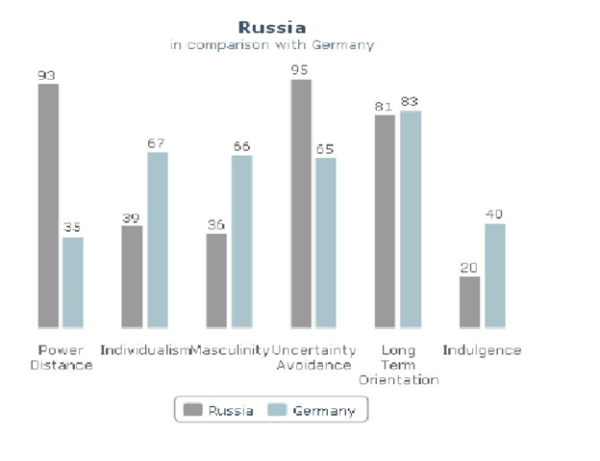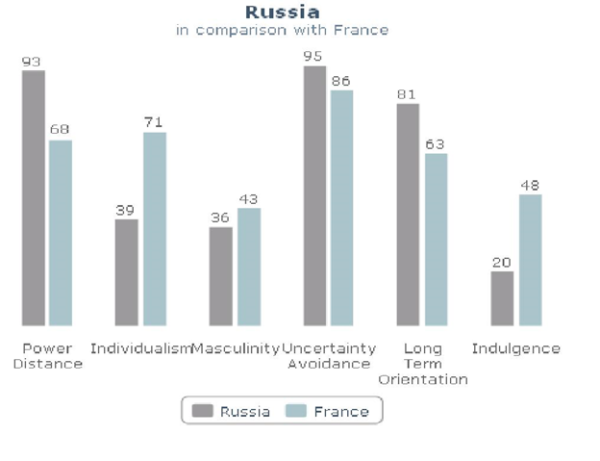Culture Is The New US Foreign Policy
Over millennia mankind has adopted military conflict as a means of ending negotiation through extortion: “Hands up or I shoot.†The problem with this method is that it succeeds and thus, like a virus, replicates itself. Extortion becomes the norm.
The second world war, for example, was caused by the lack of extorted success after the first war. Nowadays people talk excitedly about WWIII because the winner wants more; it is hard to reject a method that has been successful in the past, and even harder to defend having done so when governments are bankrupt, the middle class hovers on the precipice of doom, and our citizens are disunified and adrift.
With the advent of the cold war, strategic efforts by the Pentagon to “win” included an article written by the Pentagon’s “Mr. X.” Apparently it was successful but while the end of the cold war caused the breakup of the Soviet Union, America also suffered because they did not know how to be the world leader, a position to which their status as the unitary superpower elected them.
Again the Pentagon came to the rescue with an article written by a duo calling themselves “Mr Y.” It proposed a competitive environment based on business instead of military superiority through technology. Instead, it leveraged technology to achieve business superiority, much as the Japanese had successfully accomplished their delayed invasion of the United States by making inexpensive, reliable cars in the 1980s.
This idea was probably the basis for the “new world order” announced by G.H.W. Bush in 1991: the US and its allies would form an economic bloc, dominate the world with financial power, and thus achieve indirect rule much like Havel’s concept of soft totalitarianism: people would want to be part of the regime for fear of being excluded, not from fear of extortion.
However, the Leftists intruded and bungled this as they do with everything they touch because their “ideology” is based on reality-denial disguised as reality-correction. This became the de facto policy of the Left from Clinton onward. Under recent Democrat leadership, America has inverted the old formula, and now is using war as a means of business.
Clearly the saying “business is war by other means” has unintended consequences. If business fails, it goes bankrupt. If military fails, people die. However, if the people who are dying are not of statistical concern to voters, this does not matter. This creates an American foreign policy biased toward war — in Libya, Iraq, Somalia, Afghanistan, Yemen, and Syria — because this enables a “circular Ponzi scheme.”
In this circular Ponzi scheme, government dumps money on the military and more importantly, its contractors, who then generate economic activity with that money and cause the currency to be in greater demand (a classic Leftist demand-side economic concept) which then enables the government to borrow more to keep the cycle going. It is “Keynesian Socialism” by any other name, and the government does the same thing with welfare.
Having a foreign policy that defaults to war affects American society because it covertly structures that society towards supporting war. The economy, political system and social order all become dependent on having a war and people orient themselves relative to that war. Apparently this is a sensitive issue because when Donald Trump questioned it by asking “who is paying for it?” the Establishment panicked.
Trump backpedaled from the Democrat strategy to something more resembling the Mr. Y approach: by making the US into an economic powerhouse, he could induce cooperation rather than compel it. The difference for Trump is that he has detached foreign policy from ideological concerns, making it a practical issue and not a quest to spread certain ideas worldwide, so it can serve the cause of stability alone and thus aid business.
The Trump doctrine while have a massive influence not just on geopolitics, but on how government is organized and thus, the functions around which American society is structured. This means that economics will influence military functions and in turn influence politics and culture, creating a feedback loop with the idea of pragmatism at its center.
Defense and Economics are essentially single disciplinary functions in Government, but culture is a multi-disciplinary function for which there can be no single Secretary of Culture. Years ago managers were arguing about organizational structures being either project or line oriented. But functional structures were overall quite effective.
However, discussions with Boeing revealed that value was added when an “integrative management function” was added. Different words to describe this “function” could be “Systems or Function Integration” where the responsibility would be to test the combined team effort against a multidisciplinary framework.
This would be performed within the Organization’s defined framework, but in a Government, this framework will change to National Culture. The foreign policy ramifications are anticipated to strengthen cultural ties with France and Russia during the first phase based on this motivation as follows:
In order to stabilize cultures towards a new trading world as opposed to the new world order (NWO) directive, the cultures of the major players will be briefly assessed herewith. But first, the dimensions used to measure cultures require clarification as follows:
- Power Distance: This dimension deals with the fact that all individuals in societies are not equal; it expresses the attitude of the culture towards these inequalities amongst us. Power Distance is defined as the extent to which the less powerful members of institutions and organizations within a country expect and accept that power is distributed unequally.
- Individualism: The fundamental issue addressed by this dimension is the degree of interdependence a society maintains among its members. It has to do with whether people’s self-image is defined in terms of “I or We.” In Individualist societies people are supposed to look after themselves and their direct family only. In collectivist societies people belong to in-groups (like cults, gangs or families) that take care of them in exchange for loyalty.
- Masculinity: A high score (Masculine) on this dimension indicates that the society will be driven by competition, achievement and success, with success being defined by the winner/best in field – a value system that starts in school and continues throughout organisational life. A low score (Feminine) on the dimension means that the dominant values in society are caring for others and quality of life. A Feminine society is one where quality of life is the sign of success and standing out from the crowd is not admirable. The fundamental issue here is what motivates people, wanting to be the best (Masculine) or liking what you do (Feminine).
- Uncertainty Avoidance: The dimension Uncertainty Avoidance has to do with the way that a society deals with the fact that the future can never be known: should we try to control the future or just let it happen? This ambiguity brings with it anxiety and different cultures have learnt to deal with this anxiety in different ways. The extent to which the members of a culture feel threatened by ambiguous or unknown situations and have created beliefs and institutions that try to avoid these is reflected in the score on Uncertainty Avoidance.
- Long Term Orientation: This dimension describes how every society has to maintain some links with its own past while dealing with the challenges of the present and future, and societies prioritize these two existential goals differently. Normative societies. which score low on this dimension, for example, prefer to maintain time-honored traditions and norms while viewing societal change with suspicion. Those with a culture which scores high, on the other hand, take a more pragmatic approach: they encourage thrift and efforts in modern education as a way to prepare for the future.
- Indulgence: One challenge that confronts humanity, now and in the past, is the degree to which small children are socialized. Without socialization we do not become “human”. This dimension is defined as the extent to which people try to control their desires and impulses, based on the way they were raised. Relatively weak control is called “Indulgence” and relatively strong control is called “Restraint.” Cultures can, therefore, be described as Indulgent or Restrained.
The current major Atlantic players (and supporters of Admiralty Law), is America and Britain while on the Europe mainland it is Germany. According to Geert Hofstede, their cultures are (briefly) compared herewith as follows (with all detail on the website available to the public):
Using America as the leading example, it is clear that for practical purposes its dimensions are similar to those of the United Kingdom. However, Germany deviates in the last three dimensions, meaning that they are more risk averse. This may explain their insistence on maintaining the EU monetary union, because if they don’t mitigate those risks, who (in Europe) will? America’s hold over Germany’s strong trade relations with China can be fruitfully used to the benefit of Atlanticists. The disadvantage of an Anglicized Germany is creeping Sharia and their resultant inability to even understand such a “minor external” threat.
The alternative French cultural comparison is as follows:
The difference with the French is that they find authority more acceptable, perhaps due to the influential longevity of their royal bloodlines. This allows easier relations with countries where Dictators operate. The French will as a result also be more pragmatic in their world view even encouraging criticisms of Islam as well as the resurgence of nationalist politics. They see themselves as speaking French and “being” different, which advances natural disruptive activity within the English NWO. These disruptions now include the idea that Islam is better engaged using the combined capacity of America and Russia. In other words, where Russia is sensationalized as the (military) World Enemy, France finds Islam (on a cultural basis), an existential threat. The question is which is the better American fit, Germany or France?
Using this line of thinking, the next comparison should be to determine Russia’s better fit. Herewith Germany:
Where Germany deviated in the last three dimensions with America, it now deviates in the first three dimensions (not by much, but still). The Russian acceptance of authority almost dwarfs the other dimensions. The surprising Russian collectivism points to German incompatibility despite being equally risk averse.
Here is France and Russia:
There is no question that France is a better cultural fit for Russia than (current) Germany in my opinion. However, it does not have the same trade benefit with China, but then Russia might be able to fill that gap (for America).
In order to address the Islam question, it would require of America to develop positive relations with Russia and France because it is not a question of firepower, it is a question of culture. That China may prefer such an arrangement is obvious.
A US-France-Russia cultural agreement could replace the militarized New World Order. The benefit will be a stable society better placed to improve relations with (other) cultures.
Tags: cold war, culturism, england, france, germany, mr. x, mr. y, NWO, russia














